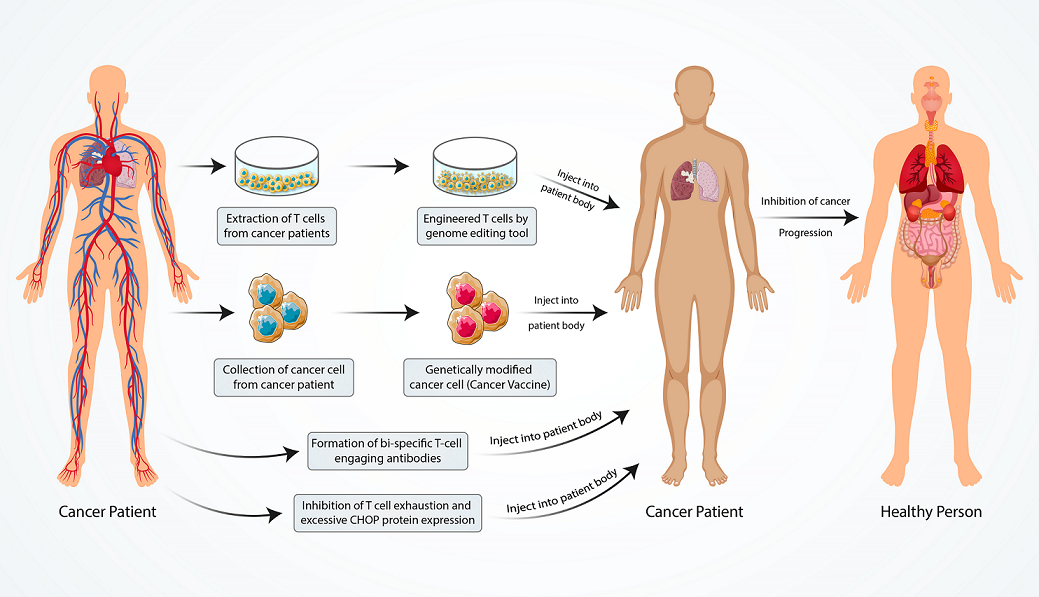The mechanisms involved in immune responses to cancer have been extensively studied for several decades and, considerable attention has been paid to harnessing the immune system's therapeutic potential. Cancer immunotherapy has established itself as a promising new treatment option for a variety of cancer types. Various strategies including cancer vaccines, monoclonal antibodies (mAbs), adoptive T-cell-cancer therapy and immune test therapy have gained prominence through immunotherapy. However, it remains to be accomplished the full potential of cancer immunotherapy. In spite of having startling aspects, the cancer immunotherapies have some difficulties including the inability to effectively targeting the cancer antigens and the abnormalities in patient response. With the advancement of technology, this system has changed the genome-based immunotherapy process in the human body including generation of engineered T cells. Due to its high specificity, CRISPR-Cas9 has become a simple and flexible genome-editing tool to target nearly any genomic locus. Recently, the CD19-mediated CAR-T cell (chimeric antigen receptor T cell) therapy has opened a new avenue for the treatment of human cancer, though low efficiency is a major drawback of this process. Thus, increasing the efficiency of the CAR-T cell (engineered T cells that induce the chimeric antigen receptor) by using CRISPR-Cas9 technology could be a better weapon to fight against the cancer. In this review, we have broadly focused on the use of CRISPR-Cas9 technology for the modification of the T-cell, which can specifically recognize cancer cells and be used as immune therapeutics against cancer. We have also demonstrated the other potential strategies for the treatment of cancer.

